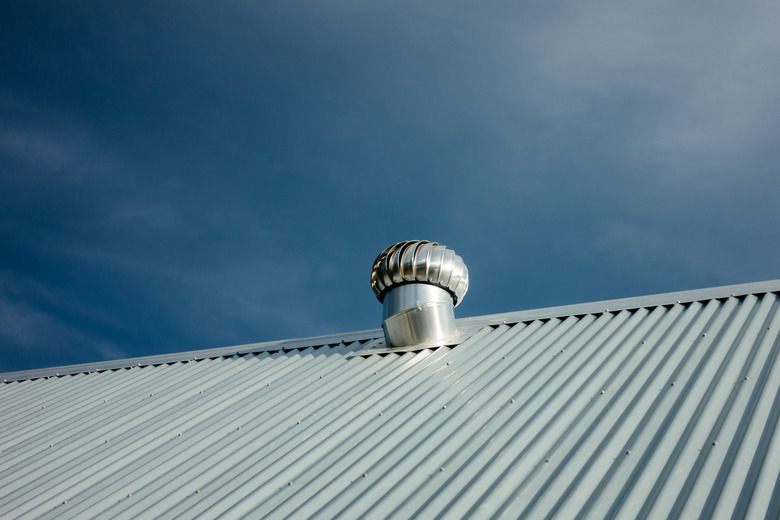Should You Cover Roof Vents In The Winter?
We may receive a commission on purchases made from links.
Roof vents allow air to circulate through your attic and exit your home. In the winter the vents cause the attic to become cold, but this should not damage your home or increase the energy use of your home, so covering the roof vents is not necessary. Blocking the vents can even harm your home by trapping moisture inside the attic.
Tip
You shouldn't cover roof vents in the winter as they provide needed year-round ventilation that prevents damage. If you're worried about heat loss or higher energy bills, improving insulation is a better solution.
Roof Vent Purpose
Roof Vent Purpose
Roof vents allow air in the attic to escape and outside air to enter by using both intake and exhaust vents. In the summer, this helps keep your house cooler by letting the hot attic air out. This can lower the demand on your air conditioning and protect your shingles from being overheated. It also helps keep humidity under control in the attic, and it can prevent issues in the winter too.
Winter Ventilation Benefits
Winter Ventilation Benefits
There are many types of vents that you may have on your roof, including turbine, rafter, metal pot, and soffit vents, but you should not cover any of these roof vents during the winter. All types of roof vents are important as they serve the purpose of creating air circulation, which is vital to keeping your attic and roof from being damaged in cold weather.
In the winter, moisture in your home is likely to rise into the attic. If the moisture becomes trapped there, it can cause mold problems to develop. Open vents allow the moisture to leave the attic and travel outside, reducing the risk of mold growth.
Open vents also ensure that cold air can enter into the attic during winter. This is important in colder climates with heavy winter precipitation. If the attic is too warm during the winter, the precipitation frozen on your roof will melt, drip down to your gutters, and then refreeze. This accumulation of ice can damage your gutters or cause ice dams, which can damage your roof and cause water to leak inside your home.
Preventing Winter Heat Loss
Preventing Winter Heat Loss
The main reason that people believe vents should be covered in the winter is to prevent the loss of heat in the home. Attics should be insulated so that heat from the rest of the home cannot actually enter them easily. Even though the attic is exposed to the cold outside air, the areas of your home that are heated will not be. This means keeping your vents open will not result in increased energy consumption.
You can check to make sure that no heat is leaving your home through your attic by measuring the attic's temperature during the night. The attic temperature should be close to the outdoor temperature. If it's warmer, that's a sign that heat is leaking into the attic from your home.
Adding Attic Insulation
Adding Attic Insulation
If you notice heat moving from your home to your attic, the correct way to fix the problem is by improving the attic's insulation. Blown insulation and insulating boards can both be used for this job.
Avoid blocking any of the vents when installing the insulation. Rafter vents are particularly easy to accidentally block when installing blown insulation, so be careful not to cover their openings. Even though covering your roof vents may reduce heat loss in this situation, it'll likely create other costly problems such as mold.
